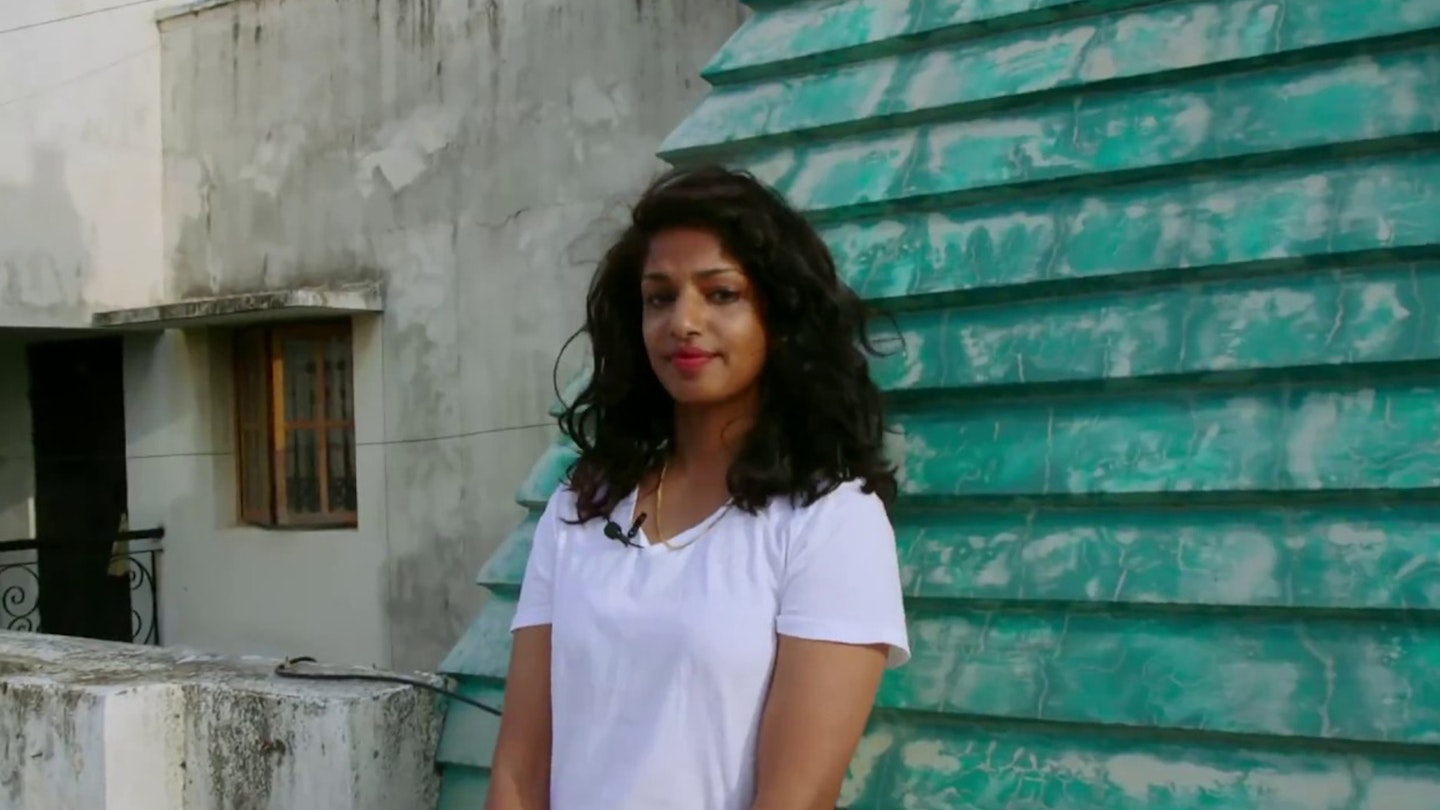“You’ve got access to a microphone. Please use it to say something.” That statement — which we hear early on from Maya ‘M.I.A.’ Arulpragasam, the subject of Matangi/Maya/M.I.A. — is at the heart of this long-delayed documentary, which profiles the sometimes controversial, always outspoken rapper/activist in compelling, if messy, fashion.

Directed by first-time filmmaker Steve Loveridge, who has been friends with Arulpragasam since they studied art together at London’s Central Saint Martins in 1996, Matangi/Maya/M.I.A. immediately distinguishes itself from other docs of its ilk in that much of the reportedly 700 hours of footage the movie is culled from was shot by Maya herself. We get access to candid videos at various stages of our heroine’s life throughout, but it’s arguably an illuminating 2001 trip to Sri Lanka, in addition to an earlier brief but revealing moment with her “terrorist” father, that yields the most essential insights.
Matangi/Maya/MIA is comprehensive but by no means definitive – her music is firmly in the background here.
Both sequences speak to Arulpragasam’s troubled upbringing and core identity — her father founded a Tamil militant group and fought in a Sri Lankan Civil War while Maya fled to London with the rest of her family in the late ’80s — and as the film continues we empathise with her struggles to marry her outspoken political beliefs with her rapidly rising popstar status. Crucially, although Loveridge’s admiration for his friend is clear to see, his doc is no hagiography, with multiple sequences showing how her “addiction to attention” could land her in some tight spots.
While Matangi/Maya/M.I.A. is comprehensive, then, it is by no means definitive. M.I.A. is one of the most unique talents we’ve seen in recent years but her music — along with career milestones such as signing with Jay-Z’s Roc Nation in 2012 — is firmly in the background here. There’s precious little time devoted to her creative process, and clips of her audacious music videos and live performances are sparingly utilised.
As frustrating as that is, in many ways it’s befitting of the M.I.A. we see in this doc. After years of struggling to get her political activism to resonate, Matangi/Maya/M.I.A. gives it a microphone, and it comes through loud and clear.
